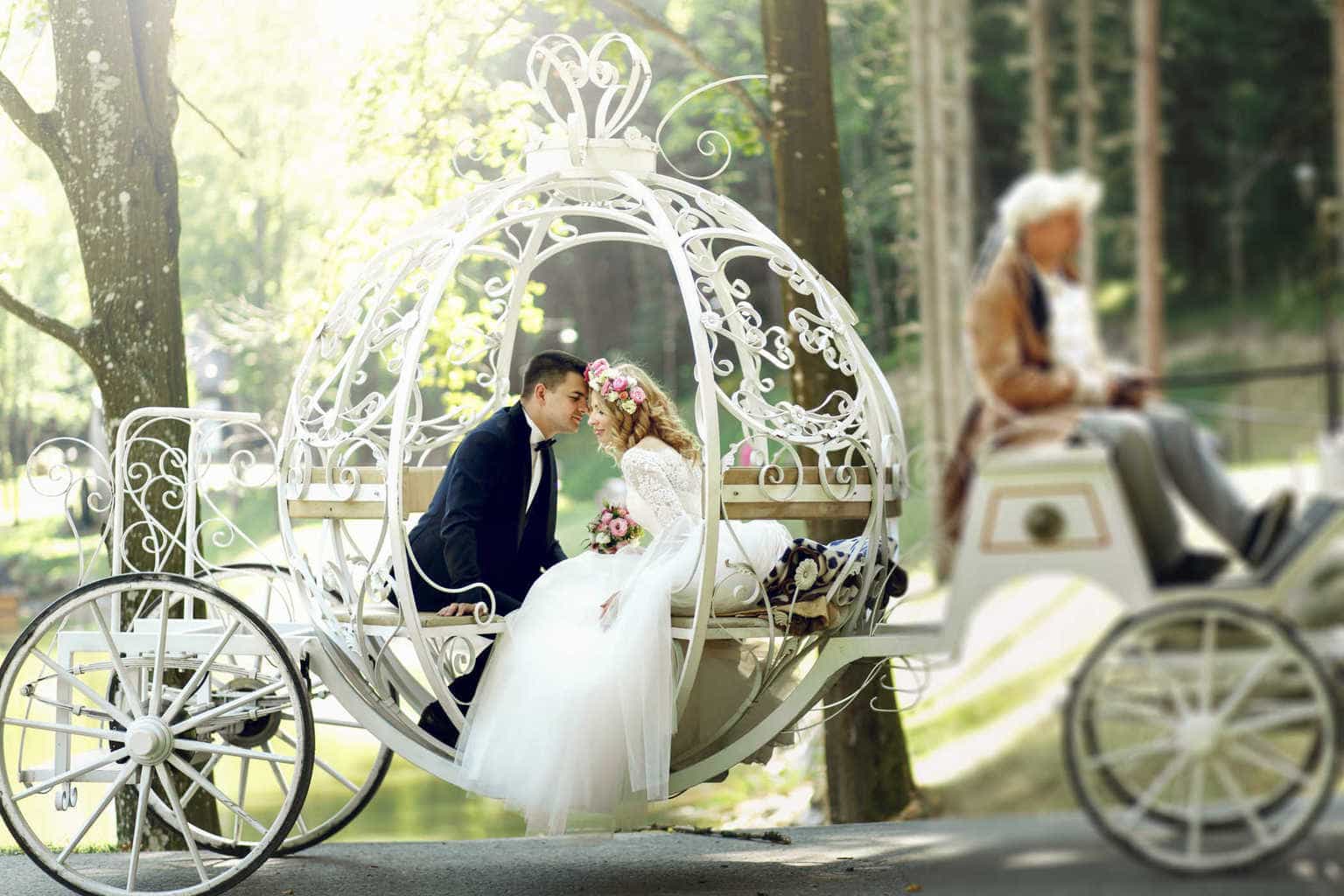Contents:
Medical Video: What is a Cinderella Syndrome by Dr. Tracie O'Keefe DCH, BHSc, ND
Cinderella's figure in the classic fairy tale of Charles Perault is described as a young woman who lives languishing under the torment of her cruel mother and stepbrother since the father's departure. Cinderella's life suddenly turned into extraordinary luck when she met the dream prince at a dance party.
Elegant glass boots and sky blue dresses combined with Cinderella's beauty amaze all the people present in the palace. The story and the magic of the wives of fairy mothers make this one fairy tale timeless.
But did you know? Cinderella's tale turns out to be the background of a psychological condition commonly found in women in modern times like today.
The term Cinderella Complex (CC) is the term modern psychiatry which was first coined by Colette Dowling, a New York therapist and author of the book "The Cinderella Complex", after discovering deep-seated conflicts that occur in women, which are related to independence. He explained that women in general since birth were not educated to face their fears, and were not taught to overcome all their own problems.
Although Cinderella Complex has not been officially recognized as a psychological condition, still, CC is an interesting concept that needs to be remembered and can be an explanation of the psychological conditions of some women.
What are the causes of Cinderella Complex?
Culturally and historically, men are considered responsible for providing household needs, and women who prepare them for families. However, it cannot be denied that as time goes on, women now have more freedom in deciding their way of life, such as traveling around the world, having higher education, and independent careers.
Even so, the community has built an image of the dream women who have subtle attitudes, behaviors, are willing to suffer, and are loyal. He is expected to be able to accept all living conditions, even the bitterest ones.
The norms and values that grow in society are very thick with patriarchal principles, emphasizing certain restrictions in terms of gender, showing the position and role of men who are more dominant than women. Men are educated to be independent and resilient. Also systematically, women are educated that happy ending in fairy tales it can become a reality, someday they will be "saved". Women are raised to depend on a man and feel helpless and frightened without being accompanied by men at their side. Women have been taught (maybe even unconsciously) to believe that as women, they cannot stand alone, that they are too fragile, too soft, too in need of protection. The opposite of the boy who was taught that the savior of his life was himself and the decision he made himself. This view indirectly forces women to depend on men and is expected to be a person who is always submissive and obedient to male power.
The tendency of women to depend on men, for the most part, is hidden feelings. Addiction is a scary thing. Helplessness makes women anxious because these feelings remind us of childhood, when we are still helpless and need the help of others. We do everything we can to hide those needs from ourselves - especially in the present, where there is a new push from the community towards independence and justice for women. This inner conflict is the root of the problem for almost all women, which influences how women think, act, and speak.
This hidden feeling does not only affect some women. Dowling believes that Cinderella Complex haunts all women.
As a result of differences in parenting for boys and girls
Cinderella Complex is closely related to child care. Girls tend to receive less encouragement to be independent with more protective parenting, and a little pressure to build a strong self-identity. Relationships between girls and parents who tend to be more harmonious also have a strong contribution to the child's exploration of inadequate values of independence. As a result, girls tend to have unreliable life skills and lack of confidence, because they only know how to depend on others. While boys are forged very hard to control themselves and their surroundings, and are forced to abandon spoiled and dependent attitudes, because these two attitudes are considered feminine.
But for a woman, self-identity begins to be printed once she grows up as a teenager to become what people expect from a woman. The phenomenon that occurs in society is that beautiful and gentle young women will get a "gift" in the form of a handsome and handsome boyfriend. Slowly but surely, he will be directed to become a submissive partner.
A woman who is too dependent on others will be labeled "spoiled" and considered unattractive, but a woman who is confident of showing her independence labeled "bossy" and "tomboy", is not the ideal traits desired by men in finding a partner.
What are the characteristics if I have Cinderella Complex?
A woman with Cinderella Complex craves a savior partner, someone who can protect, protect, and provide all her life needs. You see it in a housewife who has to ask her husband's permission to just buy a dress; in independent women who cannot sleep at night when their partners go out of town; in women who are suddenly widowed or divorced who feel depressed and helpless because they have to take care of themselves.
Cinderella Complex leads to ineffective behavior at work, feeling anxious about success, to the stage of fear that independence will eliminate the essence of her femininity as a woman. Not surprising, given that the close relationship between femininity and independence has been formed since ancient times. Caught in the transition between two different female concepts, many women are still reluctantly emotionally committed to independence. Dowling believes that there is a clear relationship between independent fear and the fact in the community that women's economic conditions are still below men;
Eighteen percent of Indonesian women who work are heads of households. And almost half of women whose husbands are willing and able to support their families tend to choose not to work. The community continues to support the idea that wives and mothers must have the choice not to work. As a result of being given this choice, many middle-class women take jobs as a kind of experiment - as a trivial sideline.
On the one hand, modern women have now obtained all the freedom they have been fighting for. But ironically, people continue to distinguish women into two categories: "beautiful women" and "smart women." And in the view of society, these two categories are very opposite. A woman is considered to only be one of the two choices above. If a woman has beauty and intelligence, it is likely that she will be "dumped" by the community: not liked by other women because of envy, and shunned by men because they feel inferior and do not know how to act in front of you.
This is a turning point for young women when they are faced with the reality of today's culture: What should I do to balance intelligence and beauty in order to be accepted by society?
The image of the ideal woman formed in society, which portrays a woman as a gentle person and plays a role in both the kitchen and in bed, actually destroys a woman's self-confidence in her own abilities, making her even less independent. So, unconsciously, many women to date are still secretly waiting for an external factor, namely a man, to come and change their lives. Thus, we are stuck in a binding condition: Cinderella Complex.
Then, the big question arises:
Can a woman be released from Cinderella Complex?
A woman can be a wife, mother, and independent individual. These three variables stand alone and are not related to each other. The helplessness that we feel is just an excuse.
The first and most important thing is to recognize the extent to which fear controls your life. Write a self-observation journal, noting all your dreams and fantasies and the reality you are facing. Join a community of women, or diligently gather with your close friends to share with each other and honestly open up. Once we can recognize our fears, that's where we can slowly challenge ourselves, slowly but surely, re-educate ourselves to realize our inner potential.












